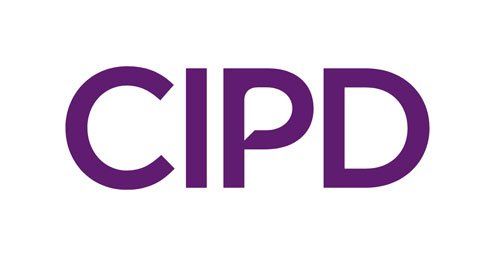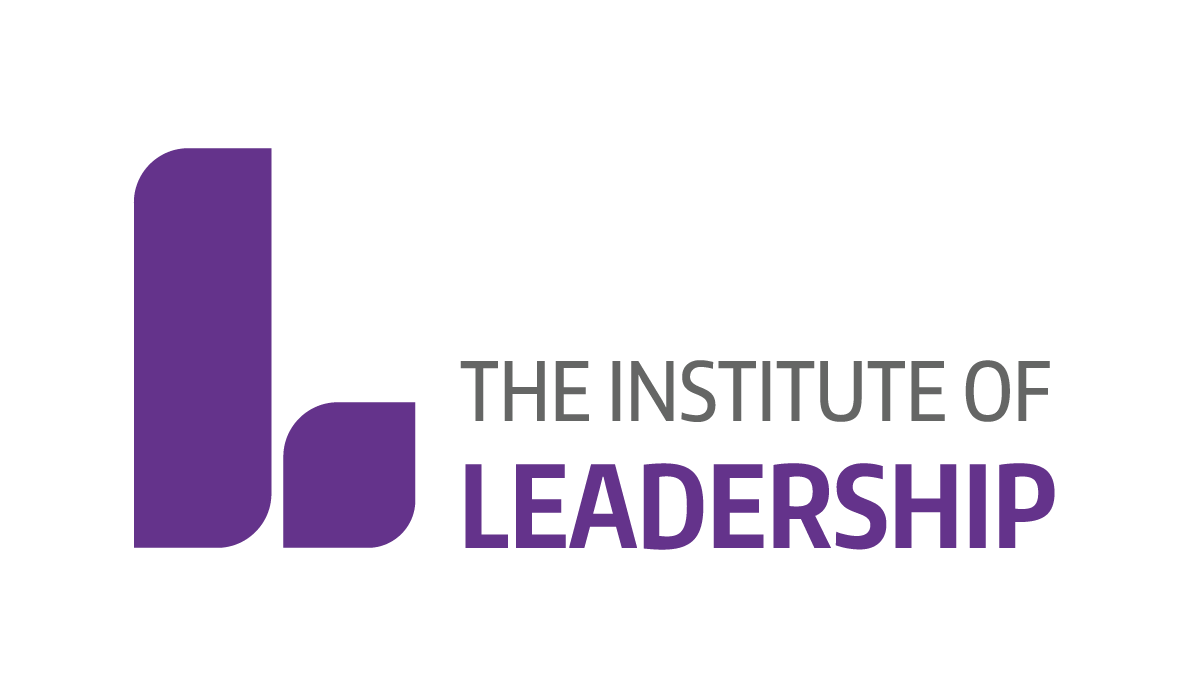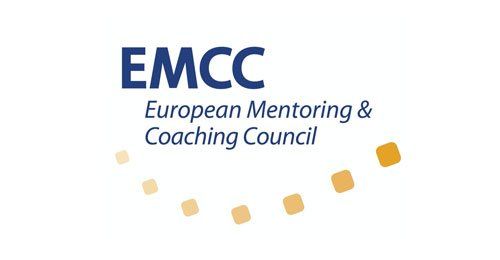The Equality Complex: An Antidote to Ego and Imposter Syndrome
Richard Hood • 5 February 2025
In the ebb and flow of daily life, many of us unconsciously weigh ourselves against others. In the boardroom, this can be particularly acute. We assess who seems to have more - more success, more ideas, more confidence, more opportunities—or less. These comparisons can trap us in an unhelpful cycle of inferiority or superiority, a dynamic that is as corrosive to our individual wellbeing as it is to the systems we operate in.
But what if there was a better way to navigate these moments? What if, instead of falling into the binary of "more than" or "less than," we embraced a mindset that levels the playing field?
I call this The Equality Complex.
Equality in Value, Difference in Circumstance
At its heart, the Equality Complex is about remembering a simple but profound truth: we are equal in value but different in circumstance.
In the context of leadership and the workplace, this means understanding that while differences in circumstances - experience, resources, roles, or external pressures - can lead to varied performance levels and capabilities, we are all ultimately human beings of equal worth with a shared psychology.
Recognising and respecting these differences is key to creating equitable and effective systems.
Why the Inferiority/Superiority Dynamic Persists
Naturally, we’re conditioned to see the world through a lens of comparison. In the workplace, this might look like measuring ourselves against colleagues who seem to excel in high-pressure situations, possess specific expertise, or receive accolades more often. These comparisons can feed feelings of inadequacy or inflate egos, neither of which contributes to healthy leadership or team dynamics.
At a systems level, the inferiority/superiority dynamic undermines equity and collaboration. By valuing only certain types of performance or outcomes, organisations risk overlooking the contributions of those operating under different circumstances or in less visible roles.
A New Way of Leading
The Equality Complex offers a framework for leaders to approach their teams with a balance of empathy and accountability:
1. Equal worth, tailored support
Recognise that while every team member brings equal value to the organisation, their needs and circumstances may vary. A high performer under ideal conditions might struggle under external pressures, while someone less visible might thrive with the right support. Leadership is about identifying and addressing these nuances to empower every individual to succeed.
2. Context-driven performance
Understand that performance is often circumstantial. Acknowledging this doesn’t mean lowering standards but instead creating the conditions where everyone has an equitable opportunity to excel. This could involve adjusting workloads, providing targeted resources, or fostering psychological safety.
3. Ego in check, vision in focus
For leaders, adopting the Equality Complex means letting go of hierarchical thinking that places some voices above others. Instead, it’s about creating an environment where diverse perspectives can thrive and contribute to a shared vision.
Levelling Imposter Complex
On an individual level, the Equality Complex is a powerful tool for dismantling imposter complex. Leaders who struggle with self-doubt can reframe their thinking by focusing less on comparison and more on their unique circumstances and contributions.
Similarly, this mindset helps prevent overconfidence or ego-driven behaviour by emphasising shared value and collective goals over individual achievements.
Building Equal Systems
Organisations that adopt the Equality Complex can transform not only their culture but also their outcomes. Leaders can create cultures that inspire growth, collaboration, and sustained performance.
When systems are designed to value everyone equally while accommodating circumstantial differences, they become more inclusive, innovative, and resilient.
Practical steps for embedding this mindset into workplace systems include:
Tailored development opportunities: Design leadership and skill-building programmes that cater to team members at different career stages or performance levels, enabling everyone to maximise their potential.
Performance evaluation with perspective: Refine evaluation and reward structures to consider contextual challenges and unique contributions, ensuring that success is recognised in its many forms.
Creating an open feedback loop: Encourage team members to share insights into challenges or opportunities that may impact performance, fostering an environment of trust, adaptability, and continuous improvement.
Closing the Gap
The Equality Complex is more than a mindset - it’s a movement towards balanced, authentic leadership and equitable workplaces. By embracing the idea that we are equal in value but different in circumstance, we can break free from the trap of comparison and build systems where egos are kept in check and imposter syndrome is kept at bay. The truth is, none of us are more or less. We are simply different. And when leaders embrace that difference with respect and purpose, the possibilities for connection, growth, and impact are limitless.

by Beth Hood
•
16 October 2024
In the ever-evolving landscape of today’s organisation, staying on course requires more than just focusing on the road ahead. Effective leaders must strike a balance between reflecting on past experiences, managing present-day realities, and navigating the future with clarity. One powerful tool I have found, both for personal reflection and for team alignment, is the Vision Exercise. This simple yet transformative activity offers executives an opportunity to recalibrate their focus, blending the wisdom of past experiences with a clear understanding of current demands and an insightful gaze into the future. As leaders, we are often caught up in the day-to-day whirlwind of decisions, tasks, and priorities. But without a clear sense of direction, it’s easy to lose sight of the bigger picture. The Vision Exercise draws on the metaphor of driving a car and invites us to step back, assess our journey, and chart a deliberate course forward. It not only encourages self-reflection but can be used as a team-building tool, helping to align objectives and identify future priorities. I’ll guide you through each phase of the Vision Exercise, providing you with practical steps to help you get the most from this reflective and strategic tool. The Vision Exercise: A Roadmap for Reflection and Growth To begin, the Vision Exercise takes about 30 minutes and requires an uninterrupted space for deep thinking. It’s not about getting the “right” answer - it’s about exploring perspectives and generating meaningful insights. You will need a large sheet of paper or piece of flip chart and some pens. Imagine you’re in a car driving on a long road. This is where the metaphor comes to life, allowing you to visualise past, present, and future aspects of your leadership journey. Let’s break it down into three steps. Step One: The Rearview Mirror Start by taking a look in the rearview mirror. In the distance behind you lies everything that has shaped your leadership and your team’s journey over the past year - both the good and the bad. As you reflect, think about the milestones, the obstacles, and the key lessons that emerged from those experiences. Take 10 minutes to jot down what comes to mind on the left-hand side of your sheet. This is a valuable exercise in retrospection, providing context and perspective. After all, as leadership expert John Maxwell points out, "Reflection turns experience into insight." Research supports the value of such reflection. A Harvard Business School study found that individuals who took time to reflect on their experiences were 23% more likely to succeed in future tasks. By reviewing your past, you can spot patterns, identify growth opportunities, and avoid repeating mistakes. Step Two: Inside the Car Now, shift your attention to the present. Focus on what’s happening right now - the operational demands, challenges, and opportunities calling for your immediate attention. Just as you might adjust your seat or check the dashboard while driving, it’s time to assess the present moment. In leadership terms, this means examining your current operational landscape - what’s keeping your organisation “on the road” right now? Consider your dashboard indicators: Are you tracking key metrics effectively? Are there any “warning lights” flashing that demand attention, such as resource shortages or team dynamics that need addressing? Check your seat placement—are you in the optimal position to lead? What immediate concerns or priorities are currently shaping your day-to-day focus? Write down these thoughts in the middle section of your page. These are the realities that demand your attention right now - the pressures that can often pull you away from long-term strategic thinking. It’s easy to get lost in the here and now, constantly managing the pressing issues of the day. Recognising this is the first step towards keeping the car moving and steering it toward a destination. Step Three: Through the Windscreen Now it’s time to look through the windscreen, focusing on the road ahead. Imagine the open horizon before you: What do you see? What challenges or opportunities lie ahead in the next 18 months? Just as you might scan the road for potential obstacles or turns, this step invites you to anticipate what could impact your future - whether it’s market shifts, new technologies, or changing team dynamics. This forward-thinking exercise helps shift your focus from the immediate to the strategic. Research conducted by McKinsey shows that companies that think long-term significantly outperform those focused on the short term. Among the firms focusing on the long term, average revenue and earnings growth were 47% and 36% higher respectively. Taking time to “look ahead” helps ensure that you’re not blindsided by unexpected developments and encourages you to identify opportunities and position yourself to take advantage of them. As part of this process, it's crucial not only to concentrate on the risks and roadblocks ahead but also to reflect on the potential unexpected wins. Consider what would be ‘amazing if’ scenarios - what if something incredible were to happen? Focusing on these positive outcomes is a powerful way to manifest them, as it primes your mind to make subtle, micro-decisions that align with realising that reality. This visioning technique, used widely in sports coaching, has proven highly effective. For example, Dr. Pippa Grange helped the England football team transform their performance in handling penalties using this approach. While it might feel unconventional, tapping into the subconscious mind can be a game-changer for realising your leadership potential and driving success. On the right-hand side of your page, spend 10 minutes noting down what you foresee. What’s visible on the horizon that could shape your leadership or business? More importantly, what might be lurking just beyond your line of sight? Balancing Focus: Where Are You Looking? Once you’ve completed these three steps, take a moment to consider your focus as a leader. Are you spending too much time looking in the rearview mirror, stuck in the past? Or are you so preoccupied with present-day concerns that you’re neglecting to look ahead? Leadership requires a delicate balance between all three perspectives - learning from the past, managing the present, and preparing for the future. It’s worth asking yourself: Do I need to shift my focus to spend more time scanning the horizon? How can I ensure I’m not simply reacting to the present but also strategically steering toward future goals? Applying the Vision Exercise with Your Team Once you’ve completed the exercise for yourself, it can be equally impactful to work through it with your team. By aligning on the past, present, and future, you’ll uncover where priorities intersect and where misalignments may need addressing. These insights will help foster clarity and focus, ensuring everyone is moving in the same direction. Encouraging your team to participate in this exercise also provides an opportunity to discuss individual and collective strengths and areas for improvement. The Power of Vision in Leadership At its core, the Vision Exercise is about finding balance. As leaders, we must learn from the past, manage the present, and prepare for the future. This tool offers a structured, reflective way to assess where your focus lies and how you can adjust to lead with greater intention and foresight. In the end, leadership is not just about looking forward but also about recognising the road already travelled and making deliberate choices about where to steer next. By incorporating regular vision exercises, you can ensure that your leadership focus remains sharp, strategic, and aligned with the future you want to build—for yourself, your team, and your organisation. Taking time to step out of the operational grind and consider the bigger picture is a small investment with tremendous returns. After all, the future belongs to those who prepare for it today. The Vision Exercise offers a clear framework to do just that.

by Beth Hood
•
17 May 2024
In the fast-paced world of modern organisations, executives are constantly seeking avenues for personal and professional growth to stay ahead of the curve. Two popular interventions often considered are mentoring and coaching. While these terms are sometimes used interchangeably, they represent distinct approaches to development, each with its unique benefits and applications. For executives contemplating where to invest their time and resources, understanding the nuances between mentoring and coaching is essential to make informed decisions that align with their goals and aspirations. In this piece, our founder, Beth Hood seeks to shed light on these two powerful – but different – developmental interventions. Mentoring vs. Coaching – The Basics At its core mentoring is a relationship-based approach where a more experienced individual (the mentor) shares knowledge, insights, and experiences with a less experienced individual (the mentee). This dynamic fosters personal and professional growth by providing guidance, support, and encouragement. Mentors often draw from their own successes and failures to offer valuable advice and perspective to help mentees navigate challenges and capitalise on opportunities. By contrast, coaching is a goal-oriented and action-driven process focused on unlocking an individual's innate potential to maximise their performance and achieve specific objectives. Coaches facilitate self-discovery and empower executives to identify their strengths, weaknesses, and blind spots. Through active listening, powerful questioning, and constructive feedback, coaches help executives develop new skills, overcome obstacles, and drive sustainable change. Put simply – a mentor will offer advice, guidance and recommendation and a coach will ask (many, many!) questions in order to help you find your own advice and guidance. Among practitioners and professionals, there are many different definitions of coaching and mentoring as well as a lively debate as to which is the superior avenue. Both are different philosophies – coaching is rooted in the strong belief that we are all perfectly equipped to think for ourselves, given the right conditions. Mentoring on the other hand works from the basis that those who have travelled the road ahead have much to offer those who follow later. In order to further shed light on the distinctions between mentoring and coaching, let's delve into the key differences through the lens of practitioners and experts in the field. 1. Focus and Scope: Mentoring often entails a broad scope, encompassing both personal and professional development. As Dr. Lois Zachary, an internationally recognised expert on mentoring, notes, "Mentoring is about nurturing, guiding, and developing the whole person." Mentors offer holistic support, addressing various aspects of the mentee's life and career trajectory. On the other hand, coaching typically maintains a narrower focus, targeting specific goals or challenges identified by the executive. All coaching conversations have a purpose and an aim. According to Sir John Whitmore, a pioneer in coaching, "Coaching is unlocking a person's potential to maximise their performance." Coaches work collaboratively with executives to clarify objectives, develop action plans, and measure progress towards predefined outcomes. 2. Structure and Format: Mentoring relationships may evolve organically and may lack formal structure. Mentors and mentees establish rapport over time, with interactions occurring on an as-needed basis. Meetings may be informal and flexible, ranging from casual coffee chats to structured sessions. Coaching engagements tend to follow a more structured format, typically involving regular sessions with predefined agendas and objectives that the sponsoring organisation has signed off. Coaches may utilise frameworks, models, and assessments to guide the coaching process systematically. Sessions are purposeful, with a focus on driving tangible results within a specified timeframe. 3. Expertise and Experience: Mentors typically possess significant expertise and experience in their respective fields, often serving as role models for aspiring executives. They draw from their deep well of knowledge and insights accumulated over years of experience to offer guidance and wisdom to mentees. Coaches, while also knowledgeable in their domains, prioritise facilitating the executive's self-discovery and growth rather than providing direct advice or solutions. As Anthony M. Grant, a leading researcher in coaching psychology, emphasises, "Coaching is fundamentally about self-directed learning and personal growth." All Verosa coaches hold an internationally recognised, professional coach qualification, accredited with the International Coach Federation, the European Council of Coaching and Mentoring, or the Institute of Leadership and Management. These professional qualifications are rigorous and requires many years of practise and supervision. 4. Relationship Dynamics: Mentoring relationships are characterised by a sense of camaraderie and trust, often evolving into long-term partnerships built on mutual respect and understanding. Mentors act as confidants, advocates, and advisors, fostering a supportive environment where mentees feel safe to explore ideas and seek counsel. Coaching relationships, while also built on trust and rapport, are more focused on the executive's development journey. Coaches challenge coachees to step out of their comfort zones, confront limiting beliefs, and embrace new perspectives. The coach-client relationship is based on accountability, with coaches partnering with their clients to hold themselves to account for their actions and commitments. The Middle Ground – Coachsultancy Verosa started to use this term some years ago, as a way to describe the kind of pragmatic and impactful development that we were being asked for by our clients. Coachsultancy works on the philosophy that we are all able to think for ourselves and that there may be value in someone with experience and expertise offering input and suggestion lightly and without attachment on occasion. The key here is that we ensure our clients understand the difference between the two disciplines and that they are in the lead as to how they want to work in any particular session. Our coaching faculty will contract rigorously with their clients and will signpost any opportunities to switch between modalities. The coaching approach will always take priority – it is generally more powerful for our clients to work out the answers for themselves than for us to give them answers (and who is to say that the answers we offer will be right for them in any case?). However, it does leave room for Verosa coaches all of whom are leadership experts and have had extensive business experience themselves, to place a guiding hand on our client’s shoulder when they ask for it. Making an Informed Choice: As executives weigh their options for development, it's crucial to consider their unique needs, preferences, and objectives. While both mentoring and coaching offer valuable pathways for growth, the decision should align with the executive's context and goals. Mentoring may be ideal for executives seeking holistic support, wisdom, and long-term guidance from seasoned professionals. Conversely, coaching may be more suitable for executives navigating specific challenges, striving for peak performance, or seeking to unlock their full potential. Ultimately, whether opting for mentoring, coaching, or a combination of both, executives can embark on transformative journeys of growth, learning, and self-discovery. By understanding the nuances between mentoring and coaching, executives can make informed choices that pave the way for success in both their personal and professional lives. As Dr. Zachary aptly summarises, "The best investment you can make is in yourself."

by Beth Hood
•
23 January 2024
In an ever-evolving world, one thing that is increasingly clear is that leadership demands more than just a one-size-fits-all approach. Verosa’s concept of 'Leadership in 3D' represents a dynamic leadership mindset crucial for today's leaders, managers and professionals operating across all sectors, to meet their leadership challenges head on. Understanding Leadership in 3D 'Leadership in 3D' is about adapting and adjusting our leadership style across three critical dimensions: the self, the other, and the situation. This triad forms the backbone of effective, dynamic and impactful leadership. 1. The Self : Leadership begins within. It's about understanding who you are – your values, experiences, personality, core purpose, motivations and crucially – the impact you have on other people. Self-aware leaders are authentic and genuine, inspiring trust and respect from their teams. At Verosa, we believe that all leadership begins with an understanding of self and that this work is never finished. Leaders who invest in developing self-awareness find they can navigate the complexities of their role far more easily and effectively than those who don’t take the opportunity. In the recent book ‘Optimal: How to Sustain Personal and Organizational Excellence Everyday’, Daniel Goleman (widely recognised as a seminal voice in the space of Emotional Intelligence - EI) and Cary Cherniss, restate the case for self-awareness (the foundation of EI) as a key driver for success for today’s organisations. 2. The Other : Leadership is relational. It requires an understanding of others' value sets, personality preferences, skills, strengths, and experiences. By acknowledging and valuing these differences, leaders can foster an environment of inclusivity and respect whilst adapt their own behaviours to better meet the needs of those they are interacting with. Most of us do this naturally. For example, I could have the same conversation with two different people in my team and my approach is likely to be subtly different in each case. This is because as a human being, from a very young age I have had an understanding of how to create connection. The adaptation is subtle and is very often subconscious and it is a manifestation of my recognition of and respect for the other person. 3. The Situation : Every leadership challenge is unique. The context, background, and desired outcomes of a situation must shape our approach. Adaptable leaders assess and respond to the nuances of each situation, ensuring their leadership style meets the specific needs of the moment. The considerations here are many. What is at stake? What level of urgency is here? What risks are involved? What is the bigger picture? What might be some of the unseen or unintended consequences? Where are the gaps in knowledge? Leaders must hone their situational acumen. This dimension calls for us to be skilled in assessing the landscape, as well as a deep preparedness and openness to seeing a different perspective and changing tack. This flexibility allows for more effective decision-making and problem-solving. When we consider leadership in this way, our focus becomes less attached, more nimble and dynamic and usually leads to better outcomes all round. Using Leadership in 3D Let’s take a practical example. As a leader, I have to discuss a change of contract with a supplier. I know the supplier partner well – they are highly focussed on accuracy, fairness, process and logic. My own preference is more relational, less formal and global in scope. Taking these to variables alone – Self and Other, I can already understand that I might need to adapt my framing of the conversation and change the way in which I prepare for the meeting, using data to make the case for change and backing that up with a detailed plan to solve the challenge. Then I layer on the third variable – Situation. This situation is complex. We have a strategic relationship with this supplier and is it imperative that this remains in place. However, the current contractual arrangement is prohibiting our ability to meet the needs of our customers in line with our stated mission and purpose. We are an organisation that is committed to being responsive and our suppliers relationships must be built on this commitment. This conversation actually has quite high stakes and visibility to the senior team. On paper in this case, I hold the cards. I could take a ‘tell’ approach and insist things are done in a new way. That may well come at the cost of the relationship longer term however, and damage the positive and constructive partnership we have come to rely upon. I could ask someone else to take on this meeting, but the situation variable tells me that there is too much strategic importance here. I could take a highly democratic approach, inviting a great deal input from my counterpart, but this might come at the expense of achieving the necessary contractual outcome. Given consideration of all the variables, I take the following approach: I know that details and figures are not a preference for me. I enlist a team member to support me by gathering the data that illustrates the current situation and the desired situation. I think about the questions that my counterpart is likely to have in response to the proposed changes and I prepare answers to these in advance of the meeting. I share our strategic vision – setting out the ‘why’ for the change and highlighting the importance of the partnership in service of the vision I invite my counterpart to make other suggestions for reaching the same outcome and give these genuine and due consideration, adopting any that might support the desired outcome. Conclusion 'Leadership in 3D' is not just a concept; it's a practice, a way of leading that acknowledges and respects the complexity of human interaction in a professional setting. By understanding and adapting to the self, the other, and the situation, and by embodying the five leadership mindsets, leaders can navigate the diverse landscapes of modern business with agility and grace. At Verosa, we believe in empowering leaders with these dynamic tools, preparing them to lead effectively. The 3D approach fosters a deeper connection with team members, a greater understanding of diverse perspectives, and a keen ability to navigate the intricacies of various business scenarios.

by Paul Austin
•
23 January 2024
As a child of the 60’s, I first started thinking about the phrase, “The Meaning of Life” sometime before I became a huge fan of Monty Python’s Flying Circus in the early 1970s. So, you can imagine how excited and interested I was when I saw that the troupe had released their fifth film on this very subject: My hope was that I was going to be informed, educated and entertained through humour, chaos and the absurd, by people who made me laugh uncontrollably (one of my favourite things in life). Sadly, I only got one of the above from this excellent film and came away faintly nauseous from all the laughing and the copious amount of blood and viscera on show. As a curious person, this subject came back to me at various times as I finished school, got my degree, my first and subsequent jobs, found the love of my life, travelled, settled down, my wife gave birth to our two fabulous and healthy children and I flowed through my career. Yet, despite a certain sense of maturing as an individual, building resilience, happiness and what I think of as “Wealth” (health, sense of wellbeing, contribution to family and friends, enough money etc.) all of those magical things still left me wondering about this mystical wisdom, this key to the universe, spirituality and sense of understanding what for, and why we are here on this mortal coil. And as time moved on and my corporate career came to a natural end, I embarked on my Executive Coach training, thinking that it would be fun, challenging, valuable and maybe, just maybe, would offer me an insight into what for me was this nebulous concept of The Meaning of Life … And while the process of becoming an accredited coach has and continues to offer me deep personal insights into how I behave and the impact I have on others and myself and so much more, it was in the area of Physical Science when I heard about the nature of “Entropy” that things started to become much clearer for me. Entropy, if you don’t already know, can be defined as the transfer of energy from hot bodies of matter to cold ones … or in short, that Energy, however it is derived, be it totally naturally, e.g. the Sun, or via man made means – including life – will eventually dissipate and come to a halt. This then got me thinking about the life energy we are born with, and what we can reasonably expect from our time on earth, the opportunities we find for ourselves, the boosts and barriers we are given by our upbringing, parents, key people and relatives, and the power we have to make choices that can steer our presence in this world. Add to these, the impact we make, the love and happiness we can engender and how continuing personal growth is a goal worth seeking … as no one knows it all … and all this while our Entropy unwinds … So, when I started to put together the concept of Entropy with my developing sense of self and self-awareness, emotional intelligence and understanding of the basics of psychology, I had a bit of a “light bulb” moment on this Meaning of Life question … Maybe, just maybe, I was considering the question incorrectly in the first place.... Is it in fact better to think about The Meaning of Me in this Life ? My answer, and the more I challenge this I cannot get away from it, is Yes, it is all about how I conduct myself, the choices I make, how I commit to growing, getting better at what I do, helping myself and others with kindness, patience, love and support … all armed with the insights afforded to me by my life and its lessons to date, along with my coach training and support from the delightful and giving individuals I have met along the way. And yes, of course, this development is available to everyone who opens themselves up to the universal wealth that is self-development, self-questioning and commitment to growth for them and for the general benefit. For one thing is sure: we cannot escape the reality of Entropy, and it is our duty to decide on our paths in this World and what we want to achieve. That is our Power. 5 indicators that coaching may hold value for you: You are feeling that there is something missing in your life that you can’t quite pinpoint You have questions about work / life balance and potential burnout You are often angry, anxious, overtired or grumpy and concerned about the impact you are making on others and yourself when feeling this way Life seems to be passing you by rather than you creating your own path forward You struggle finding time to talk with someone who won’t judge you and who will challenge you in a positive way If you would like to talk confidentially with Paul or any of our coaches, please do get in touch so that we can set up a no-obligation discovery conversation at a time to suit you.

by Beth Hood
•
20 November 2023
The cliché goes that people don’t leave businesses; they leave bosses. It’s an old adage, but one that continues to be supported by recent research by the CMI and YouGov. In a study that sought the views of nearly 5,000 employees, only 27% described their managers as ‘effective’. According to this study (and indeed many others), the net result of these unskilled managers is low employee engagement, lower performance and productivity, high attrition levels and low morale. This isn’t new news. According to the Telegraph, we are a nation of ‘bosses’ with one in four employed people in the UK having a people management aspect to their roles. And yet data from Gallup indicates that less than half of those managing others are likely to have received any training. In the business world, where we are strategic and considered about so much, (would you employ an accountant with no grasp on numbers?), it beggars belief that we leave so much of the people management aspects of the workplace to chance – particularly when getting it wrong can have such a catastrophic impact on organisational success. The CMI report highlights that many of us in management positions (particularly in the UK) have found ourselves there almost accidentally. It’s the phenomenon of being promoted because we are good at the technical ‘what’, when organisations must also be thoughtful about the level of competence in the relational ‘how’. Small organisations in particular suffer here, where budget for learning and development is likely to be limited. SMEs rarely have the ability to support large management training programmes and so most ‘upskilling’ is left to happen organically. This in turn can create whole cultures of managers and leaders learning poor habits and behaviours from those above them, ranging from an inability to have challenging conversations, to demonstrating a lack of trust in their teams that results in toxic micro-management. The good news is that help is on hand and that people management skills can be learned and developed. The Telegraph invites us to check whether we have a ‘bad boss’ using the following criteria: You barely know them They don’t trust you They can’t navigate the hybrid working reality They play favourites They avoid tough conversations They have a high opinion of themselves They are not evolving. Our invitation would be to turn this lens inwards if you are someone who manages others. It’s a good place to start and to discover whether your management ability, behaviour and mindset needs an MOT. (Be honest!) Even managers who have been leading teams for a long time need a tune up now and then and, in our experience, this is never a wasted effort. So, what are some of the first steps we can make towards being better bosses, even if we have had no training in this space? Here our top tips to redress the balance of ‘bad boss’ syndrome: 1. Recognise there is value in getting to know your people. The most important knowledge any manager has is knowledge of their people. This extends from their strengths and capabilities to their working preferences and home-life. Make an active effort and put time aside to find out about your team and see them as unique individuals. What makes them tick? What makes them smile? Build rapport by sharing your own stories and invite them to share theirs. Psychologist Ed Schein asserts that modern leadership requires the building of Level 2 Relationships that move beyond traditional transactional hierarchies. Ask questions and be curious about who you have working for you. 2. Challenge yourself to let some things go. Trust is such an important part of today’s workplace and trust means that we are prepared for our people to get things wrong and to learn from it. Liz Wiseman describes this as a high challenge, high support environment, where the standards are high and there is also room to try things out and make mistakes without fear of retribution and blame. People don’t grow if we don’t trust them. If something is high risk, high stakes, it may be that you cannot fully hand it over but if that is the case, be honest about your need to be involved and the reasons behind that. 3. Offer flexibility and connection. Flexibility is one of today’s workplace ‘hygiene factors’. This means that for many people, it’s not an optional ‘nice to have’, rather it is a must have in the workplace. This extends in many cases to our desire to choose where we work, whilst at the same time having the feeling of being connected. This requires some thought from managers who will need to create an operating rhythm with set pieces where your people can connect with you and the business, as well as plenty of space for individual work. Why not facilitate a discussion on what could work for the team? Whether that is weekly online meetings, quarterly face to face days in the office or monthly one to ones. Don’t fall into the trap of cancelling these in favour of other things. The impact – whilst not immediate – will be felt and is never positive. 4. Avoid the blame game. We all find some people easier to work with than others. How can you challenge yourself to give your time fairly and to evaluate people equitably? If you find yourself in the firing line from above for something that one of your team has done, step into your power of accountability and don’t deflect the oncoming fire towards that person. Avoid political manipulation or manoeuvring to serve your own agenda – people can smell that a mile off and you will lose the loyalty of your team very quickly. 5. As hard as it can be to have those all-important difficult conversations, don’t avoid them. Your people won’t thank you for it and neither will the person in question in the long run. Some of this about your mindset. In her book Radical Candour, Kim Scott talks about coming from a place of both caring for the person in question (and their development) and needing to share the challenging message. Stick to the facts without judgement and share the impact of what is happening to help the person understand why the conversation is needed. Lastly, invite their input on how to move forward. This is skill that needs to be practised – a muscle that needs to be exercised, so get to the ‘gym’! 6. Let go of being right. Our egos get in the way of all sorts of things in life and at a macro level are the heart of many things that are wrong in the world. Most of us are attached to being ‘right’. Letting go of our own self-importance, understanding that no one has the monopoly on being right (we are all right, but no one is 100% right) is crucial for managers. This means making space for different opinions and validating them. It means backing down and sharing our own learnings when we have been wrong. It means demonstrating intellectual humility. Not always easy, buy try and work on a cognitive handbrake that allows you to recognise the attachment growing. 7. Commit to the journey. We are none of us the finished article. The world of work is evolving and so must we. Invest in your own development. This can be anything from reading articles like this, to seeking feedback from those you lead and from your own manager, to attending formal manager training. Stretch yourself out of your comfort zone and allow yourself time to reflect on the What, So What and Now What. Most of all, be kind to yourself. The journey to good people management is ongoing and needs to be taken one step at a time.
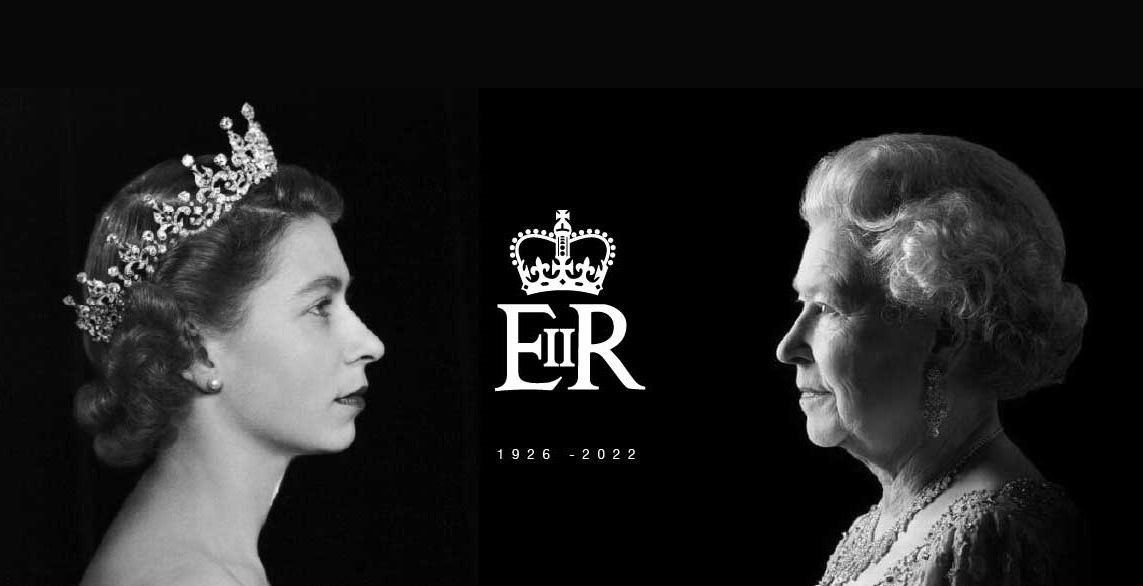
by Beth Hood
•
19 September 2022
As a country and Commonwealth mourns the passing of its beloved Queen, it is an opportunity to reflect on the deep and lasting legacy of a lifetime of leadership. Leadership as we know comes in all shapes and sizes and is constantly evolving. No one has the monopoly on good leadership, but from time-to-time history presents us with a model so exemplary, a beacon of light so bright that it touches every part of our social fabric and indeed of the world. Her Majesty Queen Elizabeth II was just such a beacon of light. Her values of humility, honesty, grace and resilience were so finely tuned, so clear in their impact, that her legacy will be felt for generations to come. At Verosa, we very often talk to our leaders about their living legacy. We ask them to consider what it is that they would like to be remembered for as leaders and to pay attention to how they can be living that legacy right now, today. We talk to our leaders about the privilege of leadership and also of the responsibility; the fact that as leaders they will be visible and ‘on a platform’ for all to see. We invite them to consider that every day they will be having an impact in ways and in areas that they may never know about. Queen Elizabeth was a leader who knew this to her core. She lived her life in the public eye and never wavered from that scrutiny. In a leadership role that spanned decades, she never shied away from her responsibility as monarch, nor did she seem to resent the unrelenting public interest in some of her most private – and at times painful – human experiences. The nature of her leadership power was nuanced and complex. With no decision-making or constitutional rights, she required a different leadership strategy. Her authority and her power derived ultimately not from an active role in governing her country, but from her ability to role-model what good – and modern – leadership looks like. She listened. She listened with a grace and empathy that Daniel Goleman (the Godfather of Emotional Intelligence) would be floored by. With so many to listen to, how on earth was she able to be present enough to make whomever she was interacting with feel so very heard? But that she did.
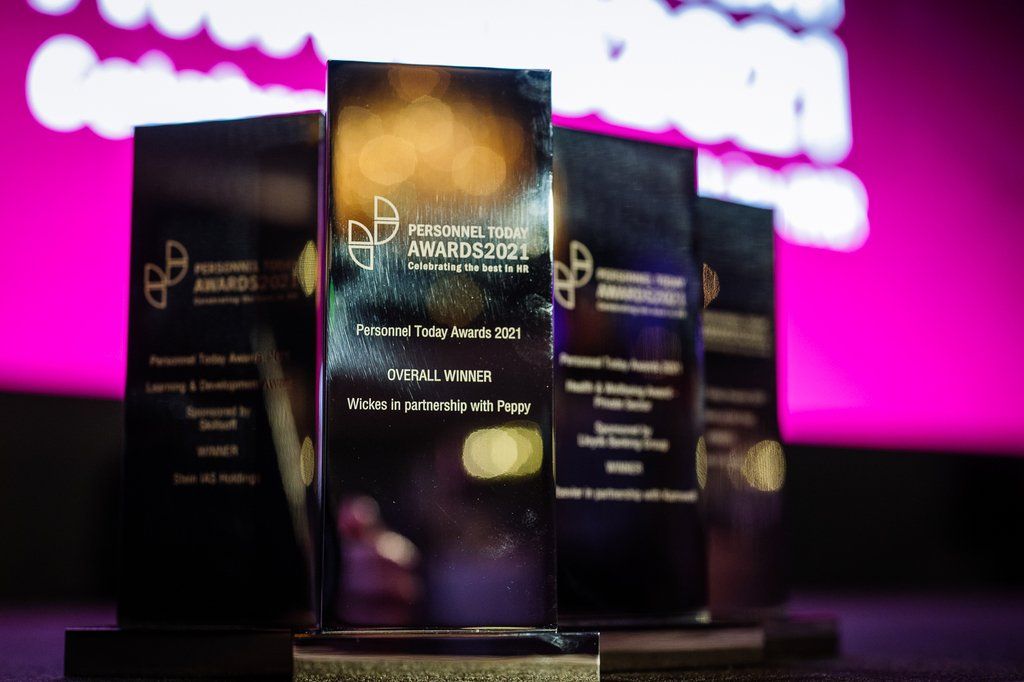
by Beth Hood
•
1 December 2021
We were delighted to be short-listed for the Personnel Today 2021 Learning & Development Award in partnership with IRIS Software Group.
Together with Steph Kelly, Emma Dutton and Shirley Deegan from IRIS Software Group, I had the pleasure of attending the Personnel Today awards last week.

by Daniel Hopkins
•
29 September 2021
Verosa client and CEO of METEX Online, Daniel Hopkins writes: I was 27 when I launched my first venture after being diagnosed with an eye disorder called Retinitis Pigmentosa (RP to its friends). RP is an inherited, progressive sight loss condition and there is no cure. I lost my driving licence on the day of my diagnosis. Driving was a huge part of my life and the diagnosis meant the end to my career as a business development manager, travelling to client meetings regularly - my first and very real experience of exclusion in the world of work, due to my condition. After recovering from the severe shock of being told I was going blind I retrained to sell IT hardware, but soon returned to the construction sector and moved to working with a local builders’ merchant in an office-based sales role. In the 3 years I was there I grew my sales category from £200k to £1.4 million. In all honesty though I was frustrated with not being able to visit clients and I missed the freedom to manage my own time. I began discussions with a large local groundworks contractor and after a few months of planning they invested in my new construction supplies venture. From this point I’ve never looked back. Enabling my own inclusion, I used taxis via the access to work scheme which has proved invaluable, allowing me some independence with getting to and from my business premises. Being Visually Impaired and running a business is tough, in fact doing anything is pretty challenging when you are blind in the dark and have 75% less vision than most during the day. I meet many people who, through no fault of their own but just a lack of knowledge, are unable to associate with a non-visual disability. I look ‘so normal’ – and I’m conscious that If I’d have lost an arm or a leg life would be different as my disability would be so much more visible. In many ways I’ve created my own inclusion within business world. Sometimes pretending I don’t have a significant disability and more recently by being open and honest with people and asking for help or saying, ‘I don’t feel comfortable doing that’. Sometimes the reactions you get are surprising, some disappointing but some people really surprise you with their empathy and compassion. Overall, in the UK we are so lucky to have a society that cares for its disabled community. I’m encouraged that particularly through the pandemic and the wearing of masks, that adverting based around ‘not all disabilities are visible’ is becoming more commonplace - this can only serve to help with inclusion and is a good thing. Although still a good way to go through education and sports like the Paralympics, we continue to lead the way globally in the UK to include, show empathy and compassion to its disabled people, whether you can see that disability or not! How leaders and organisations can create a more inclusive space for Visually Impaired Team Members 1) Create a strong, supportive team In my businesses I’ve always been lucky enough to have great senior teams. This is essential for inclusion. They understand my sight condition and can support many aspects of my practical challenges day to day, whether that’s keeping walkways clear or helping guide me physically to a meeting. In addition, they are my allies in a seeing world and are actively looking for ways to create a more inclusive environment for me – physically and psychologically. 2) Create good dialogue early on with external clients and stakeholders Many clients and partners will have expectations that are particularly challenging for me to meet. The invitation to ‘come and have a look at this display in our very busy warehouse’ or ‘come to my office three floors up through a room of crowded people’ can be prohibitively difficult. Over time, I’ve found that being open and clear with clients about my disability has helped us co-create a more inclusive work around. Ideally, I will arrange to be driven to a venue and stay in one place for the duration of the meeting. This causes very few problems and doesn’t weaken my position with the client as they appreciate the honesty and the extra effort I have made to meet them. 3) Be conscious of environmental changes and the impact on the VI individual It’s when the environment changes all of a sudden that the plan you had in your head evaporates! Environmental changes are probably one of the largest challenges within business. In my own home, around my local streets, I’m used to the lay of the land and obstacles that I might encounter etc. Now we are very careful and take extra care with the changes in the work space and keep these to a minimum. 4) Look for ways to empower and enable In business number three, I employed a part time driver that took me to meetings on a weekly basis. Being in charge of my own destiny was important. It had a big impact on my performance and my ability to lead initiatives myself. Often small changes make a lot of difference. Every sight disorder is different, so start with a conversation with the person about what changes might help them feel more empowered. Final Thought In 2016 I climbed Kilimanjaro for charity and my best friend guided me throughout one of the most amazing challenges and experiences of my life. A few weeks after we returned to the UK, he left me falling up and off kerbs when we were out one evening. It was at this point I had to remind him I’m blind in England as well as Africa! My point being that for me when looking so normal (relatively speaking) people forget, family members forget, best friends forget, work colleagues forget, so keeping the unseen needs ‘seen’ and front of mind is so important. About Metex Online: With manufacturing facilities in both the UK and internationally, Metex provide innovative construction sector related products. https://metexonline.com/

by Beth Hood
•
15 February 2021
If you are a driver, you’ve probably had that experience of driving a familiar route – perhaps to your local supermarket or petrol station – and realising once you’ve got there and parked, that you have absolutely no recollection of the journey itself and your role in it. Often we refer to this as being on auto-pilot. And for good reason. After years of practice, the skills needed to operate the vehicle and to take us from A to B are deeply embedded within our subconscious – so much so that we are able to do this automatically and without a significant amount of conscious attention. Leadership can be a bit like that too. Sometimes we find ourselves managing our people and leading on auto-pilot. Chances are that we have been in managerial roles for some time and have a degree of comfort in our current role and context. As the role gets bigger and our career progresses, the levels of attention we pay to how we are managing and leading become less. Meta-cognition in a leadership context is about moving our attention from the subconscious to the conscious and to focussing on how we are doing things, rather than what we are doing. In the example of the car journey, it is about intentionally bringing our awareness to all the micro-choices that we make and our subsequent actions. In any given car journey, the actual process we go through to control and drive the vehicle to a particular destination is complex and intricate. In many police and military advance driving courses, students are required to narrate their journeys as they take them, calling out blow by blow every decision point, every action they are taking and every observation they are making. Not as easy as it sounds. A large body of scientific research has shown that the human brain is phenomenally powerful computer and that whilst our subconscious brain is capable of processing 11 millions pieces of information per second, consciously, the average person is only able to process a fraction of that.



